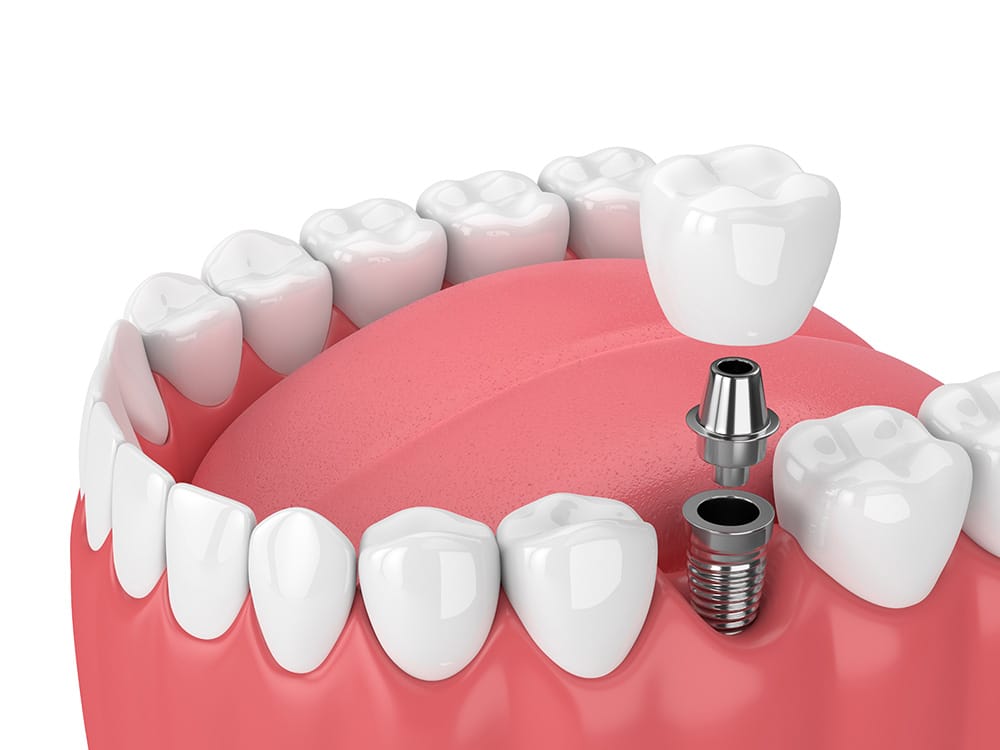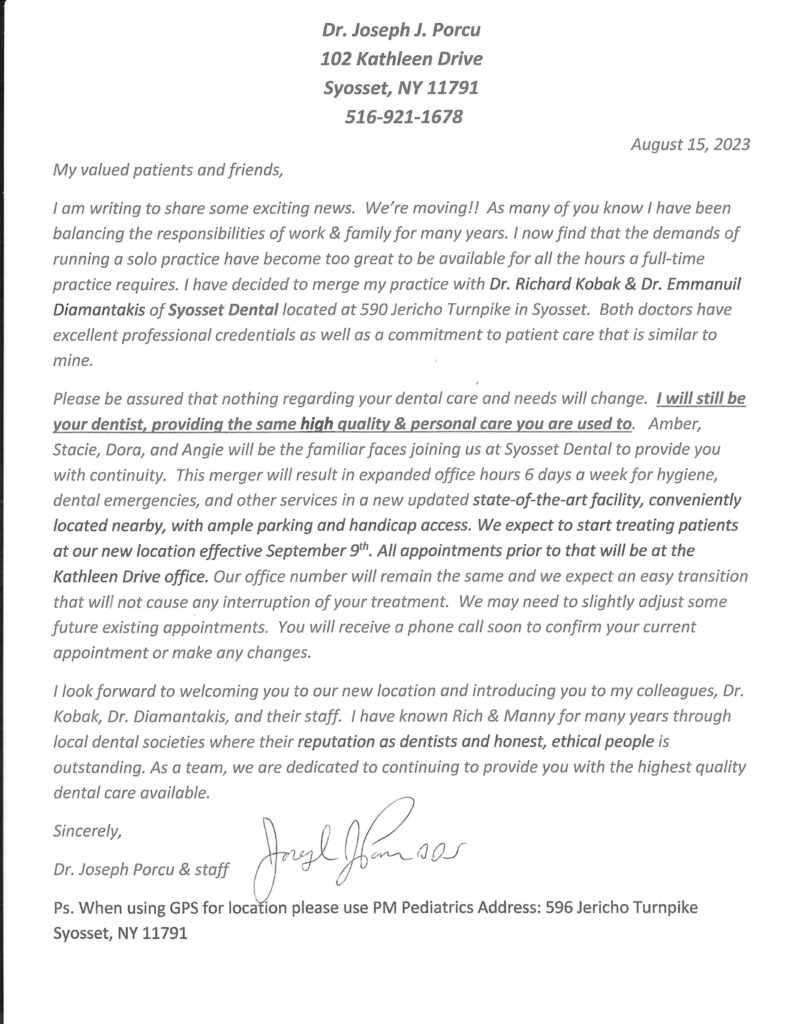Frequent Questions About Implant Dentistry

Q: What is a dental implant?
A: A dental implant is a replacement tooth made of three parts:
A small, metallic post acts as the root for the replacement dental crown. The jawbone will fuse to this biocompatible cylinder so that the crown or denture can be secured to the mouth much like natural teeth.
An abutment fits over the implant post protruding from the gums. The abutment attaches the crown to the implant post.
The restoration is the only exposed part of the implant, once the procedure is complete. The crown, partial, or denture is made to look and function as a natural tooth or teeth.
Q: Will a dental implant feel natural?
A: A dental implant is more likely to feel like your natural teeth than traditional dentures, partial dentures, or a bridge. Attached to your jawbone by a post that mimics the root of a natural tooth, an implant will not allow your prosthetic to wobble, slip, or slide out of place.
Q: What are the benefits of a dental implant?
A: A missing tooth can affect your appearance, the way you speak, how you eat, and other fundamental aspects of everyday life. Implants are more stable and secure than dentures or partial dentures, so patients with dental implants do not have to worry about a poor fit or embarrassing slippage. Unlike dentures and bridges, dental implants look, feel, and function like natural teeth because they are secured to the jawbone, so they provide the stimulation that keep a jawbone from deteriorating.
Unlike a bridge, which must be attached to the surrounding teeth, a dental implant is anchored independently. It attaches to the jawbone instead of abutment teeth. Therefore, the structure of the surrounding teeth can be preserved and chewing will feel more natural.
With proper care, dental implants can last a lifetime. In most cases, a dental implant post will not have to be replaced.
Q: Who is a candidate for dental implants?
A: Most adults who lose teeth can receive dental implants. Children whose bone structure is still developing are not candidates for implants, since the attachment site of the artificial tooth with shift as the bone grows. However, oral bone structure is typically developed by adolescence. Other considerations include medical history, jawbone health, and your own individual needs and preferences.
Q: What is the process for receiving a dental implant?
A: A dental implant is typically placed in two phases. Before the process can begin, at a preliminary appointment, you’ll undergo an evaluation for candidacy, and we’ll take digital X-rays to analyze your oral health. If candidacy is confirmed, we can schedule your implant placement. During this appointment, you will be given a local anesthetic to numb where the artificial tooth will be implanted. Your doctor will gently insert the small, metal cylinder, acting as the root of the artificial tooth, through the gums and into the alveolar bone, or jawbone. Expect a healing period of three to six months while the implant post fuses to the jawbone.
During the second phase of the procedure, we will check that the implant post has successfully bonded with the bone. If the bonding—also called osseointegration—is complete, the crown—the only visible part of the implant—will be secured to the abutment piece, which attaches to the artificial root. Alternatively, you may have a denture secured onto a few implants.
Q: How do I maintain my dental implant?
A: For the longevity of your dental implant and good oral health, clean and maintain your new implant every day. Food trapped between the implant and your surrounding teeth can cause bacteria to build up, making your gums vulnerable to disease. Plan to brush and floss your implants the same way you would brush and floss your natural teeth. You’ll also need to attend regular preventive dentistry visits, (i.e., dental cleanings and checkups) directed by your dentist.
Q: How long do dental implants last?
A: With proper care, dental implants can last 10 to 20 years or more.
Learn more about implant dentistry
If you have more questions about dental implants, and whether you qualify for them, schedule an appointment by calling Syosset Dental today at 516-433-2211 or 516-921-1678. We proudly serve the residents of Syosset, Long Island, Nassau, Suffolk, and all surrounding New York City communities.











